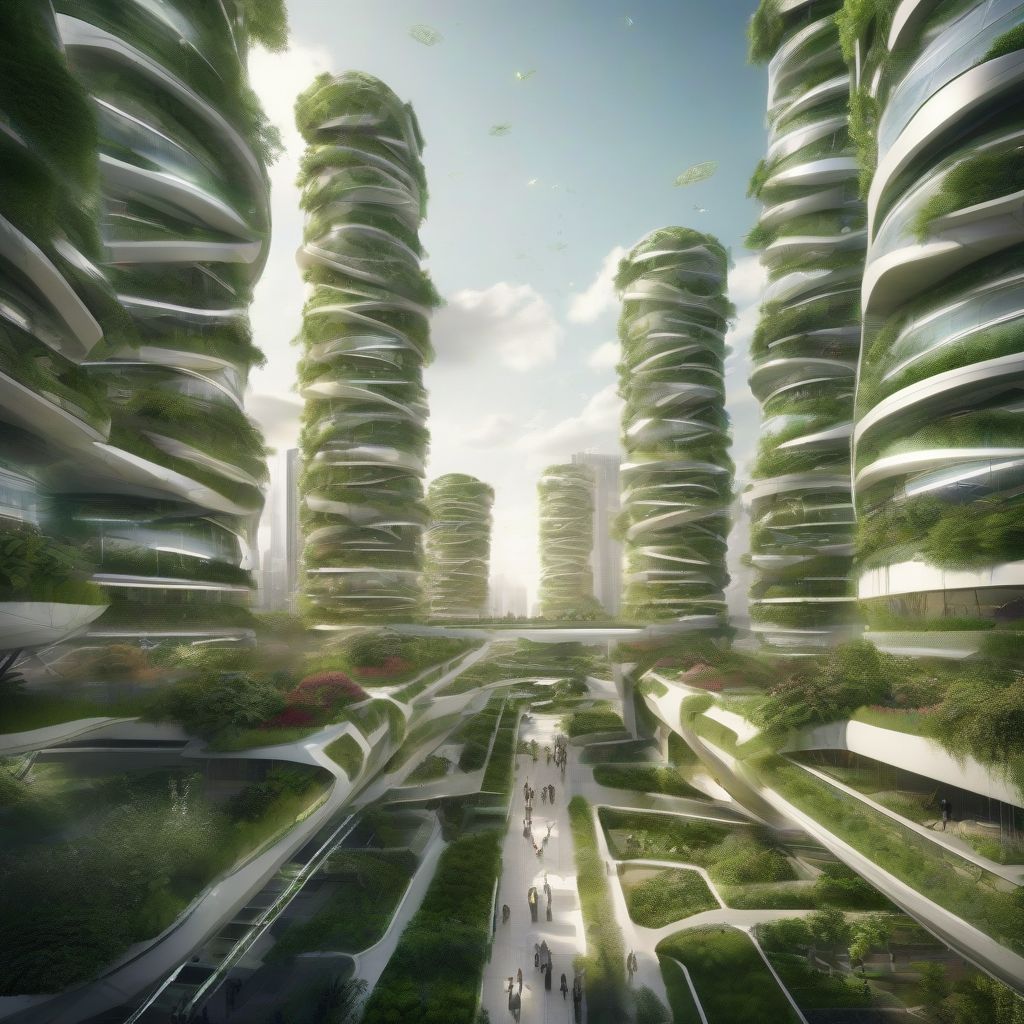Imagine a city where overflowing landfills are a distant memory, replaced by a closed-loop system that transforms what we once considered “waste” into valuable resources. This is not a utopian dream, but a very real possibility – the future of waste reduction in sustainable cities.
As a nutritionist and meal prep coach, I’m passionate about maximizing the value of the resources we use to nourish our bodies. Similarly, sustainable cities are increasingly focused on optimizing resource management, with waste reduction playing a crucial role. Let’s delve into the innovative strategies shaping this future and how they’re transforming urban environments into models of circularity.
Embracing the Circular Economy: Closing the Loop on Waste
The linear “take-make-dispose” model is being challenged by the concept of a circular economy, where waste is minimized by keeping materials in use for as long as possible. Sustainable cities are at the forefront of this transition, implementing strategies that prioritize:
1. Waste Prevention at the Source:
This involves reducing waste generation through mindful consumption and product design. Think reusable packaging, promoting repair cafes, and supporting businesses committed to sustainable practices. Cities are implementing policies to encourage these behaviors, such as:
- Plastic bag bans and fees: These measures have significantly reduced plastic waste in many cities.
- Extended Producer Responsibility (EPR): Holding producers accountable for the entire lifecycle of their products, incentivizing them to design for recyclability and reuse.
2. Enhanced Recycling and Composting Systems:
The future demands going beyond basic recycling. Sustainable cities are investing in:
- Advanced sorting technologies: These technologies utilize AI and robotics to efficiently separate various materials, increasing recycling rates and reducing contamination.
- Decentralized composting systems: Community composting initiatives and anaerobic digestion facilities transform organic waste into valuable compost and biogas.
3. Waste-to-Energy Solutions:
While not a complete replacement for recycling, waste-to-energy technologies can play a role in managing non-recyclable waste.
- Incineration with energy recovery: Heat generated from incinerating waste is used to generate electricity.
- Anaerobic digestion: Breaking down organic waste in the absence of oxygen produces biogas, a renewable energy source.
 The Future City of Waste Reduction
The Future City of Waste Reduction
Benefits Beyond Waste: A Holistic Approach to Sustainability
The impact of these strategies extends far beyond cleaner streets and reduced landfills. Waste reduction in sustainable cities leads to:
- Environmental Protection: Reduced greenhouse gas emissions, minimized pollution of air, water, and soil, and conservation of natural resources.
- Economic Growth: Creation of green jobs in waste management, recycling, and renewable energy sectors.
- Improved Public Health: Cleaner environments lead to better respiratory health and reduced risk of diseases associated with pollution.
- Social Equity: Waste reduction initiatives often prioritize underserved communities, creating opportunities for economic development and improved living conditions.
The Power of Collaboration: A Collective Effort for a Sustainable Future
Creating a future where waste is minimized requires collaboration across all sectors.
- Government: Implementing supportive policies, providing incentives for businesses and citizens, and investing in infrastructure.
- Businesses: Designing for circularity, adopting sustainable practices, and collaborating on waste reduction initiatives.
- Citizens: Making conscious consumption choices, reducing waste at home, and actively participating in city-wide programs.
Turning the Tide: Success Stories and Inspiring Innovations
Many cities around the world are already demonstrating the transformative power of effective waste reduction strategies.
- San Francisco: With a goal of achieving zero waste by 2030, the city has implemented mandatory composting and recycling programs, significantly diverting waste from landfills.
- Copenhagen: Denmark’s capital has invested heavily in cycling infrastructure and waste-to-energy technologies, becoming a global leader in sustainable urban development.
- Singapore: Facing land constraints, this island nation has embraced innovative solutions like vertical farming and advanced recycling technologies.
These success stories highlight the potential for significant progress when governments, businesses, and citizens work together towards a common goal.
Our Role in Shaping the Future of Waste Reduction
As individuals, we might feel overwhelmed by the scale of the challenge, but our everyday choices have a collective impact. By embracing the principles of a circular economy, we contribute to a more sustainable future:
- Reduce consumption: Make mindful purchases, prioritize quality over quantity, and repair items whenever possible.
- Reuse and repurpose: Find creative ways to give old items a new life, reducing the demand for new products.
- Recycle and compost properly: Familiarize yourself with local guidelines and ensure materials end up in the correct bins.
- Support businesses with sustainable practices: Choose companies committed to reducing waste and using eco-friendly packaging.
- Advocate for change: Engage in local initiatives, contact your representatives, and make your voice heard on waste reduction policies.
The Future is Circular: Embracing a World Without Waste
The journey towards zero waste in sustainable cities requires continuous innovation, collaboration, and a collective shift in mindset. By embracing the principles of a circular economy, we can transform what we once considered waste into valuable resources, creating healthier, more vibrant, and truly sustainable urban environments for generations to come. Let’s choose to be a part of this positive transformation, turning the vision of a world without waste into our shared reality.
[amazon bestseller=”Zero Waste Home”]
This is just the beginning of the conversation. Share your thoughts, ideas, and actions on reducing waste in your community in the comments below! Let’s inspire each other to create a brighter, cleaner, and more sustainable future for all.
